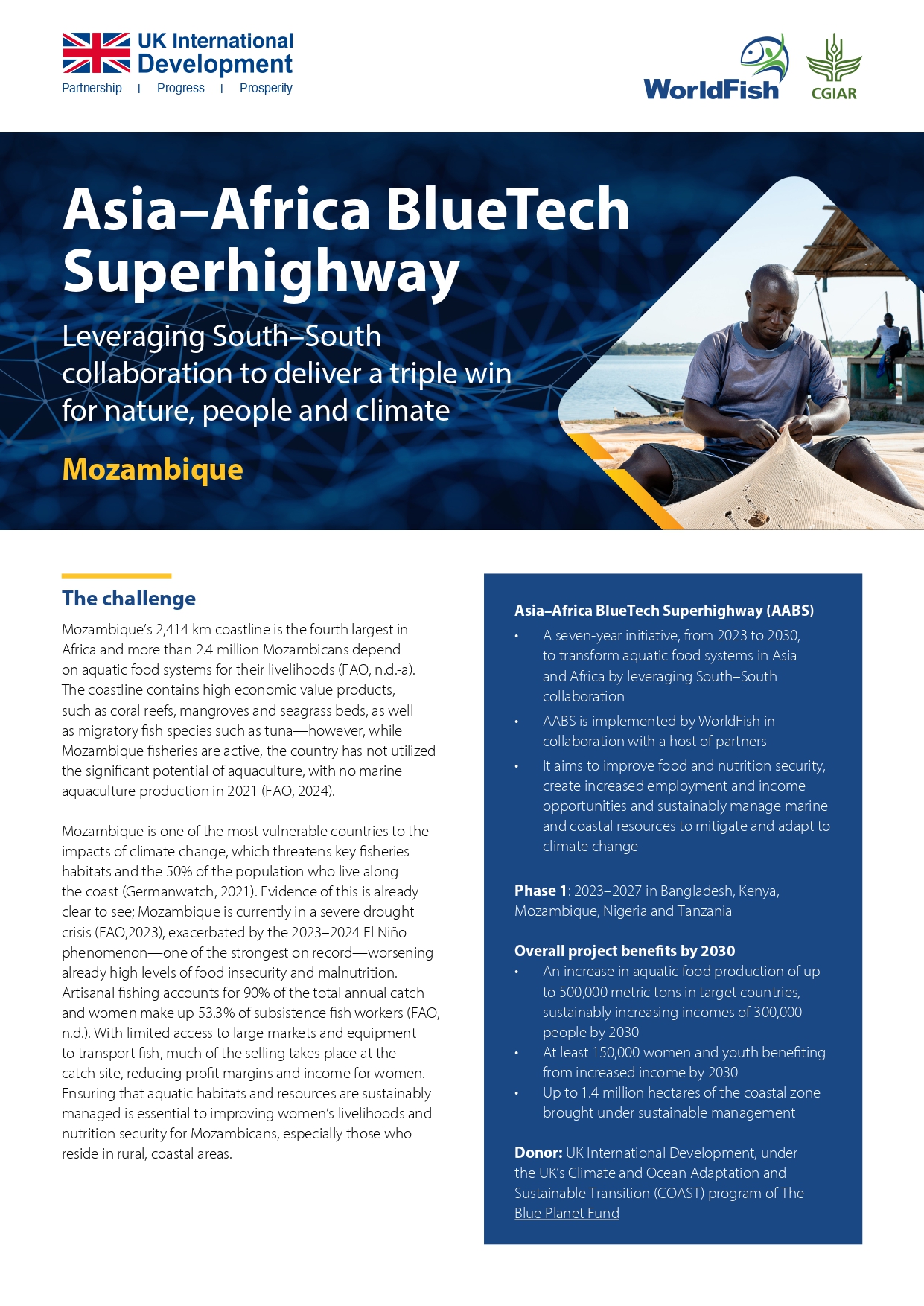The challenge for aquatic food systems in Mozambique
Mozambique’s 2,414 km coastline is the fourth largest in Africa and more than 2.4 million Mozambicans depend on aquatic food systems for their livelihoods. The coastline contains high economic value products, such as coral reefs, mangroves and seagrass beds, as well as migratory fish species such as tuna—however, while Mozambique fisheries are active, the country has not utilized the significant potential of aquaculture, with no marine aquaculture production in 2021.
Mozambique is one of the most vulnerable countries to the impacts of climate change, which threatens key fisheries habitats and the 50% of the population who live along the coast. Evidence of this is already clear to see; Mozambique is currently in a severe drought crisis, exacerbated by the 2023–2024 El Niño phenomenon—one of the strongest on record—worsening already high levels of food insecurity and malnutrition. Artisanal fishing accounts for 90% of the total annual catch and women make up 53.3% of the subsistence fish workers. With limited access to large markets and equipment to transport fish, much of the selling takes place at the catch site, reducing profit margins and income for women. Ensuring that aquatic habitats and resources are sustainably managed is essential to improving women’s livelihoods and nutrition security for Mozambicans, especially those who reside in rural, coastal areas.
The solution: Asia–Africa BlueTech Superhighway in Mozambique
In Mozambique, Asia–Africa BlueTech Superhighway (AABS) will help address the nation’s fisheries and aquaculture challenges by leveraging South–South collaboration to drive sustainability, resilience and economic prosperity in coastal communities. By implementing evidence-based models and building strategic partnerships, AABS will enhance the adaptive capacity of small-scale fish workers and farmers, mitigating the impacts of climate change and promoting the sustainability of fish production. The project will focus on Mozambique’s most vulnerable coastal regions, supporting the government’s goals while ensuring that the livelihoods of these communities become more secure and equitable.
In Mozambique, Asia–Africa BlueTech Superhighway (AABS) will help to address fisheries and
aquaculture challenges by leveraging South–South collaboration to improve sustainability, resilience and prosperity in coastal communities. Through evidence-based models and partnerships, AABS will enhance the adaptive capacities of small-scale fish workers and farmers, mitigating the effects of climate change and increasing the sustainability of fish production. By focusing on Mozambique’s vulnerable coastal regions, the initiative will not only support the government’s goals but also ensure that the livelihoods of these communities are more secure and equitable.
AABS is implementing three key areas of work in Mozambique:
- Digital Coasts—co-creating and scaling out contextualized digital information systems for small-scale fisheries.
- Climate-Smart Technologies for Reducing Aquatic Food Loss and Waste—scaling affordable, accessible climate-smart food preservation, processing and storage technologies to reduce aquatic food loss and waste.
- Incentives for Coastal Conservation and Fisheries Management—assessing, strengthening and scaling more effective and equitable incentives for coastal conservation and fisheries management.
